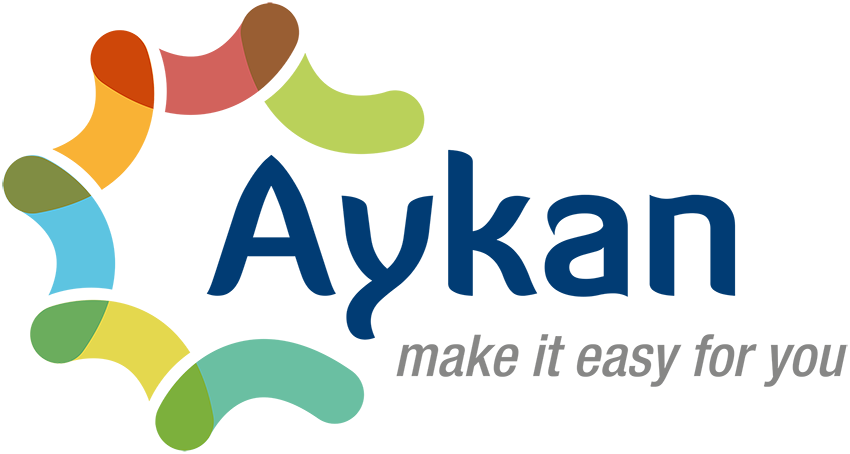The rapid growth of online marketplaces has transformed how businesses and consumers interact globally. Platforms like Sharetribe have democratized the ability to buy and sell goods and services, enabling users to create peer-to-peer exchanges across a wide range of industries. However, with this growth comes an evolving landscape of legal challenges that marketplace operators must navigate carefully. These challenges range from consumer protection to intellectual property, liability, and tax compliance. This article will explore the key legal aspects of running an online marketplace like Sharetribe.
1. User Agreements and Terms of Service
The foundation of any online marketplace is its user agreement (or Terms of Service). This agreement governs the relationship between the platform and its users (buyers, sellers, and administrators). In 2025, with the increasing scrutiny of online businesses and the rise of consumer rights awareness, having a comprehensive and transparent user agreement is more critical than ever.
Key Components:
- Acceptable Use Policies: This defines acceptable behavior for users on the platform, preventing illegal activities, harassment, and misuse.
- Dispute Resolution Mechanisms: Platforms need to clearly outline how disputes will be handled, especially with cross-border transactions, and whether they will use arbitration or mediation.
- Platform Liability: The platform’s liability must be carefully defined to clarify that Sharetribe (or any other marketplace) is not responsible for the products or services offered by third-party sellers, except in cases of negligence or failure to enforce platform rules.
With an increasing number of countries imposing stricter consumer protection laws, marketplace operators need to regularly update these agreements to comply with new regulations.
2. Consumer Protection Laws
As online marketplaces grow, consumer protection has become a significant legal concern. In 2025, there is increased regulation around consumer rights, particularly with regard to transparency, safety, and privacy.
Key Considerations:
- Refund and Return Policies: Consumer protection laws in regions like the EU and the U.S. mandate clear refund and return policies. Sharetribe’s refund and return policies typically depend on the individual marketplace set up by users of the platform. As Sharetribe provides the tools to create custom online marketplaces, each marketplace owner has the flexibility to define their own refund and return terms.
- Product Safety and Authenticity: Marketplaces are increasingly held accountable for ensuring the products sold are safe, authentic, and meet regulatory standards, especially in categories like electronics, health products, and food.
- Transparency in Advertising: Transparency in advertising on Sharetribe is primarily the responsibility of the marketplace owners. They must ensure that any ads or listings on their platform are clear, truthful, and not misleading. Sharetribe provides the tools for marketplace owners to manage their platform, but it is up to them to enforce transparent advertising practices.
Failure to comply with these consumer protection standards can lead to reputational damage, fines, or even legal action, especially in the EU where the General Consumer Protection Regulation (GCPR) imposes significant penalties for non-compliance.
3. Marketplace Liability and Responsibility
One of the most complicated areas of law for online marketplaces is determining the level of liability for the actions of their users. While platforms like Sharetribe generally operate as intermediaries between buyers and sellers, they still need to be careful about potential legal risks arising from the goods and services sold on the platform.
Determining the level of liability for the actions of users is one of the most complex legal challenges for online marketplaces. While platforms like Sharetribe serve as intermediaries, connecting buyers and sellers, they still face legal risks associated with the goods and services traded on their platform.
Key legal issues include Intermediary Liability, where Section 230 of the Communications Decency Act (CDA) in the U.S. offers limited liability for user-generated content, but platforms must remove illegal content, such as counterfeit goods or hate speech, once notified.
The Duty to Monitor refers to the growing expectation that platforms take proactive steps to ensure compliance with laws, especially regarding prohibited or unsafe goods, despite not being required to monitor every transaction.
Lastly, Seller Conduct necessitates that platforms implement systems to vet sellers, prevent fraud, and ensure good faith transactions. By addressing these legal issues, platforms can mitigate risk, foster trust with users, and stay compliant with evolving regulations.

4. Data Protection and Privacy
Data protection remains one of the most pressing concerns for online marketplaces, with a growing global emphasis on user privacy and security. The General Data Protection Regulation (GDPR) in the European Union, along with similar regulations in countries like US states like California (CCPA), has led to stricter controls over how platforms collect, store, and process user data.
In Sharetribe, data protection and privacy are prioritized through robust measures that comply with global regulations such as GDPR and CCPA. The platform implements data encryption, secure payment systems, and offers users control over their personal information, including the ability to manage consent and request data deletion.
Sharetribe also provides customizable privacy settings for marketplace owners to ensure that data collection and sharing align with privacy policies. Additionally, Sharetribe regularly updates its security protocols to address emerging threats, helping maintain a secure and compliant environment for both users and administrators.
5. Payment Processing and Anti-Money Laundering (AML) Compliance
Payment processing is a central component of any online marketplace, and as such, marketplace operators must ensure they comply with relevant financial regulations, particularly concerning anti-money laundering (AML) and know-your-customer (KYC) requirements. Payment service providers (PSPs) play a key role in ensuring compliance with financial regulations. Many platforms, including Sharetribe, integrate with third-party payment processors like Stripe or PayPal to handle transactions.
Marketplace operators must be mindful that even though Sharetribe may facilitate payments, they are still responsible for ensuring that their marketplace complies with local financial regulations. This includes ensuring that sellers are verified, monitoring suspicious transactions, and reporting fraudulent activity if required by law. Failure to comply with AML/KYC regulations can result in severe penalties, so operators should integrate robust systems to detect and prevent financial crimes.
6. Taxation and Compliance
Sharetribe marketplace operators must navigate various tax and compliance requirements, including sales tax, VAT, or GST, depending on the location of buyers and sellers. In the U.S., marketplace facilitator laws require platforms to collect sales tax in certain states, while in the EU, VAT applies to digital goods and services based on the buyer’s location. Operators must also comply with income tax reporting, KYC/AML regulations, data protection laws like GDPR (General Data Protection Regulation) and CCPA (California Consumer Privacy Act), and consumer protection requirements.
Recent regulatory changes, such as the EU’s VAT rules and U.S. marketplace facilitator laws, impact marketplace operations. To stay compliant, Sharetribe users should use payment gateway integrations, enable automatic tax calculations, and stay updated on evolving tax laws.

7. Intellectual Property (IP) Protection
Intellectual property (IP) protection is crucial for online marketplaces like Sharetribe to avoid copyright and trademark violations. The platform must implement clear procedures for reporting and addressing infringements, including a takedown process for illegal listings.
Intellectual property (IP) rights remain with the creators of the content, such as listings and images, on the platform. Sharetribe does not claim ownership of user-generated content but encourages marketplace owners to establish clear IP policies for their users. Users are responsible for ensuring they have the rights to the content they upload.
Conclusion: Stay Compliant and Build Trust
The legal aspects of running an online marketplace are vast and complex, but Sharetribe provides marketplace owners with essential tools to navigate these challenges. By addressing data protection, taxation, terms of service, and liability concerns, Sharetribe helps marketplace operators stay compliant with relevant laws. With these safeguards in place, you can focus on growing your marketplace and building trust with users.
Remember, legal compliance is an ongoing process. Always stay updated with changes in the law and adjust your marketplace policies accordingly. By prioritizing these legal aspects, you can create a secure, trustworthy environment that benefits both marketplace owners and users.








